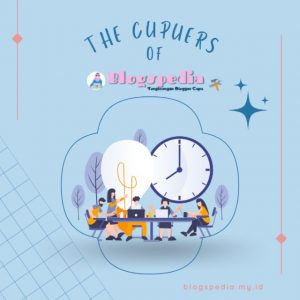Two days ago, a former colleague texted me. She asked me to help her translate a conversation from Indonesian to Turkish. It was something easy that could be done simply using Google Translate or any other translation app. Yet, she asked me to do it, worrying that the translation apps wouldn't do the job well.
I used a translation app, copied and pasted the text, copied and pasted the resulting translation, edited some words to sound more humane, and clicked 'send'. In just a few seconds, the work is done.
Using a translation app is something my colleague is capable of doing herself. However, she asked for my help because she worries whether the translation would sound correct to the person she is talking to. She was willing to ask for extra help from a human translator because she wanted to avoid miscommunication, considering how important the person she was talking to was.
But then this moment makes me wonder, will AI really replace human jobs, as feared by many people today?
 |
| Teleconference with Robot (AI image generated by Canva) |
Whether artificial intelligence will replace humans has been an ongoing discussion.
Research conducted by Microsoft using Copilot data revealed 40 jobs that are the most vulnerable to being replaced by AI. It is suggested that jobs that are related to communication, information gathering, summarizing, and drafting are very vulnerable to AI. Most the them we usually categorized as "the white collar" jobs. Translators and interpreters are the most vulnerable. Sales representatives, writers, and web developers are next.
As a person working remotely, of course, there is a question that made me worried: will online jobs vanish as they are replaced by artificial intelligence?
Here are what I observed in several areas of remote working.
In Writing
As a blogger, I see shifts in how bloggers, copywriters, and content writers work. They now use AI to create outlines and collect sources of information. Many also use AI to completely create their work. Some even automate everything. However, a slower, thoughtful, sincere writing written manually from the mind of a human author still becomes a masterpiece.
Until today, I haven't heard about an AI author that produced a book equally powerful as JK Rowling, Mark Twain, or George Orwell. These great authors didn't only write, they could read the society and the problems that emerged within. Their works connect their imagination that never existed to the cultural background that society built from long, long ago. I doubt that any AI author can generate such powerful work.
In the era of AI, I believe that bloggers and writers should be more sincere. Humanity will need powerful writers more than ever. If writers give up their work to AI, human cultures and civilization might not survive the future.
In Image and Video Creation
As a graphic designer, I also see a huge disruption in image and footage creation. People were initially very excited that even a person without any skill could create images simply using prompts in AI. When microstock services allow their creators to use AI in creating images, they are flooded with AI images, some generated and submitted automatically using a robot.
It was exciting at first, but then people became sick of all the odd images and footage. Yeah, like how I was sick of those presidential campaign videos generated by AI. Come on, they look cheap! (I am sorry to say that, but it is true.)
Videos and images created using real human actors and human models, with human videographers and photographers, are indeed expensive. But it also shows how much effort is put into the project.
I don't say that AI is useless. But you must utilize it wisely. There are boundaries for how much you can use it.
I used AI to generate pictures for this article. I refined the prompts several times until I got the image I wanted. I still use my own decision-making skills to choose whether to use the image or ditch it, and whether the picture is suitable and appropriate for the article. Human skill is still very much needed in decision-making.
In Communication
Looking back on the moment my colleague asked me to translate a piece of conversation, I doubt that translators and interpreters will be completely wiped out by AI. Human language evolves fast. New words are produced rapidly. The interpretation of a word or an expression shifts as the generation changes and culture evolves. Humans are flexible and intuitive. As long as humans keep interacting with each other, the need for translators and interpreters who speak human language will always be there.
AI customer services have already been rolled out in several e-commerce platforms. They answer your questions about a product in an instant. But I found that talking to AI is not as pleasant as talking to a human. It doesn't detect my frustration and react accordingly. Each time I need to ask something about a product, I would always request to be connected directly to a human customer service representative. Buying is not just about knowing the product. It is also about the experience. I am not sure if AI can have that level of hospitality as of human.
Adapting to AI
Several weeks ago, I had two job interviews with AI. While I believe a human HR expert still works behind the AI and the decision-making, this helps me a lot with scheduling the interview. For an HR, agreeing on a schedule with hundreds of candidates in the other part of the world can be very challenging. For a candidate, the flexibility of choosing when to have an interview without disturbing their other work schedule can be life-saving. I believe, more and more HR will be investing in using AI as an interviewer.
Development in AI is unavoidable. In the future, more parts of human life will be integrated with AI. What we can do on our part is to adapt better.
We must be more responsible and wiser in using AI. Be more critical and follow our human intuition in making decisions.
The good news is, if you are already skillful, people are willing to pay more than what you are paid today for your human skill rather than using a cheaper AI option.
As long as humans continue thinking, creating, sincerely sympathizing with humanity, and daring to do what's out of the box, AI won't be able to replace them.
Reference:
Investopedia.com August 06, 2025. Microsoft Study Identifies Jobs Vulnerable to AI. Is Your Position Secure?













AI can replace humans if human don't maintain their best skill: thinking like human with empathy and intuition. Real brand voice and authenticity remain coming from humans who actually live in the real world.
ReplyDeleteSometimes I think, sure, AI can write great articles. But it’s never stayed up at 10 p.m. worrying about competitive research that bloggers usually do, so it cannot think what this human's like.